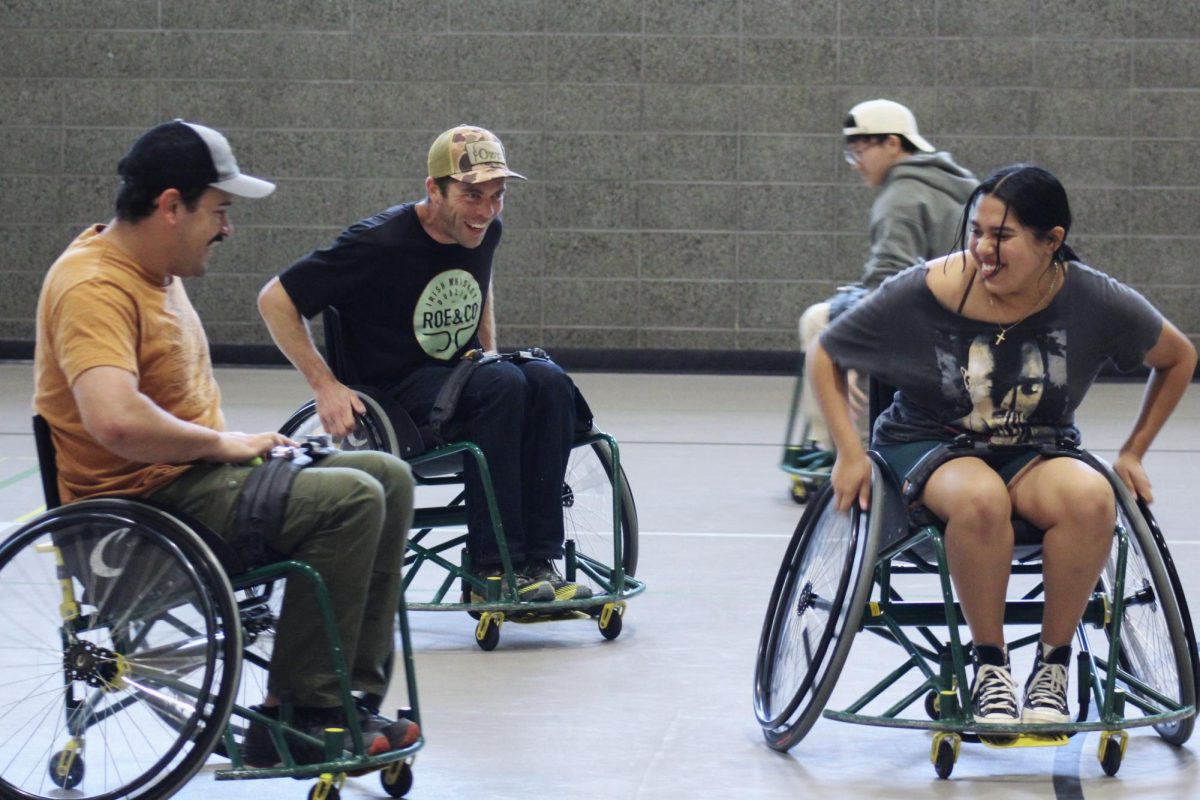Your professor, Dr. Hewlett Packard
March 12, 2003
This semester, I noticed something very different about my classes at Sacramento State. Although I enrolled in upper-division classes that include theoretical discussions, I was surprised to find that nearly all of my professors have integrated distance learning into their classes. While the discussions happen in class, many of my assignments are web-based. One class even had tests on-line. One of my professors teaches a TV class of 80 students.
Does it bother anyone else that we are paying to be educated, yet we are tested on a computer screen? What about those students who do not have access to a computer outside of school? And what about personal instruction?
Teaching is becoming threatened by a wave of technology that is eliminating classroom interaction.
Sac State is adding more Internet and television-based classes to accommodate students who cannot attend an actual class. This semester, the university offered 64 distance learning courses. Administrators love this idea, especially in these tough financial times. Higher education enrollment is spiraling up as state funds are shrinking, so distance learning classes are a dream come true for administrators who are pressured to serve more people on the cheap.
Why build more expensive buildings when a university can accommodate more students – a LOT more – using TV and PCs? Sounds like a perfect plan, right?
But distance learning involves tradeoffs. For students with children, it eliminates the problem of finding childcare. It cuts down on the number of people who clog freeways and take up campus parking space. People who can’t drive can still get an education.
But what can be taught in the classroom is priceless. There is nothing that is as educational as interacting in a class because every experience is always unique. A television screen can neither provide this interaction, nor can a PC.
What frightens me is that we are on the verge of a society where interpersonal communication has lost importance, and where a machine manufactures artificial relations and replaces human brainpower. If we continue in this pattern, teachers will not be needed because the computer can replace class instruction.
Our society is already constantly connected by wires and radio waves. By telephone and cell and fax and TV and e-mail and instant message. Everyone in your life is just a button press away. Although this may sound like progress, it’s not.
And that’s the tradeoff, convenience for quality. Adding technology to another facet of our lives, education, will only make us more dependent on it. This dependency is what can lead to a society void of intellectual thought, where discussion is no longer valid, because the computer-screen education is static.
What if we began to employ the principles of distance education to the elementary school classroom? There would no longer be a need for teachers. We would eventually create a society void of creative thought. Our children of the future would be so self-driven that there would be no need for social interaction, yet if computer systems crashed we would no longer know how to be self-sufficient.
We may be closer to attaining a society contrived of unthinking uniformity like in George Orwell’s “1984.”
This may be a cynical view of technology, but one that educators should consider as “innovations” are made to aid teaching, before technology’s blessings become a curse. Learning can be exciting and challenging. But, when it comes in the form of lecture notes on a computer screen, I’d rather not waste my time. I’m in college to think. Learning is a process of discussion.
If I wanted to earn my diploma via Internet, well, I’d just stay home.
Click here to send private feedback about this article to the State Hornet’s Forum staff.





























































































































